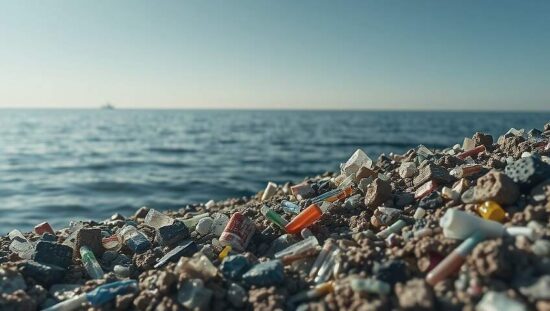Researchers Uncover Alarming Levels of Microplastic Pollution in Mediterranean Coral Reef
A recent study by the University of Kiel has revealed a staggering level of microplastic pollution in a strictly protected coral habitat in the Mediterranean Sea. The research team, led by the University of Kiel, discovered an astonishing 6,000 microplastic particles per kilogram of sediment in the Illa Grossa bay, a remote island off the Spanish coast.
The coral species Cladocora caespitosa, found in the area, is the only reef-building coral in the Mediterranean and plays a crucial role in the ecosystem. The high concentration of microplastic could potentially disrupt the coral’s feeding habits and reduce its resilience to heat stress.
What is particularly concerning is that the microplastic particles, measuring less than 250 micrometers, are small enough to be ingested by the coral. The most common plastic polymers found in the study were polyethylene, polyethylene terephthalate and polystyrene. The researchers believe that the microplastic particles are transported to the protected area through ocean currents from densely populated coastal regions.
The findings demonstrate that even the most protected ecosystems are not immune to the global plastic pollution problem. The study, published in the journal Marine Pollution Bulletin, highlights the urgent need for effective measures to mitigate the impact of microplastic pollution on marine life.





